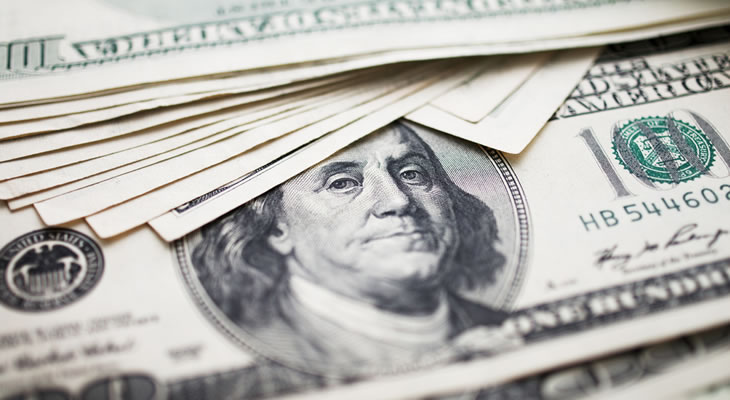- Pound US Dollar Hits 1.3059 – US Dollar Pound Slides to 0.7657
- US – China Relations Strained over North Korea – Demand for USD Staggered
- UK Housing Price Growth Eases – Pound Sterling Drops
The US Dollar was bolstered by positive US job data last Friday.
US non-farm payrolls jumped by 209,000 in July, up from the revised 231,000 in June and above market expectations of 183,000. The most notable contributors were employment within food services, drinking places, health care and business services.
July’s month-on-month average hourly earnings were also demonstrated to have risen by 0.3%, as forecast, up from the previous result of 0.2%.
Year-on-year average hourly earnings remained stable at 2.5% in July rather than dropping to 2.4% forecast.
Additionally, unemployment proved positive for the US, dropping from 4.4% in June to 4.3% in July – consistent with expectations.
These figures caused demand for the ‘Greenback’ to surge and GBP/USD has since remained in a bearish state.
Could Pound US Dollar (GBP USD) Benefit from US – China Relations Becoming Strained by North Korea?
With political pressures bolstering demand for safe-haven assets, the Pound spending Monday consolidating earlier losses against the US Dollar.
North Korea has continued developing and testing its missile program, much to the distress of its immediate neighbours Japan and South Korea.
US President Donald Trump has repeatedly demonstrated his displeasure that China has continued trading with the nation and has attempted to leverage trade agreements with China in an attempt to get the situation under control.
The Republican Party has also begun preparing to investigate China over multiple proposed violations of the intellectual property (IP) act.
The US President is able to impose tariffs on foreign products should they prove to have an unreasonable or discriminatory restriction on American commerce, and with some Chinese products being embroiled in accusations of intellectual property law violation, it is hoped that this move will put China under enough pressure to prompt the nation to help reign in North Korea.
This has caused some uncertainty regarding future US/China trade relations, however. Should relations worsen, concerns about the potential impact on the US economy could weigh on USD exchange rates.
UK Housing Prices Weaken, GBP USD Bearish
The Pound itself has struggled to make any form of a comeback against the US Dollar, primarily due to the Halifax house price index demonstrating a drop.
UK house prices rose by 2.1% in the three months to July, the slowest rate in some four years as inflation and low wage growth contributed to the slow-down.
Russell Galley, Community Bank Managing Director at Halifax stated:
‘Improvement in the jobs market has not, as yet, boosted wage growth, resulting in earnings rising at a slower rate than consumer prices […] This squeeze on spending power, together with the impact on property transactions of the stamp duty changes in 2016 now being realised, along with affordability concerns, appear to have contributed to weaker housing demand’.
This news has reflected poorly on the state of the UK’s economy, driving down demand for Sterling.


Comments are closed.